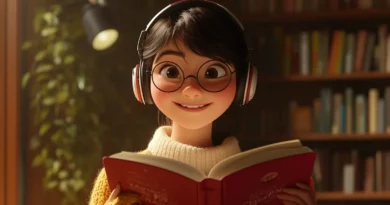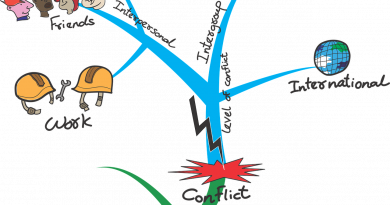Descubra por que é tão difícil entender TV e filmes sem legendas e como superar esse desafio. Neste vídeo esclarecedor, você encontrará três razões fascinantes e dicas práticas para aprimorar suas habilidades de escuta em inglês. Não perca as valiosas dicas da especialista Hadar para se tornar um ouvinte mais confiante e apreciar suas séries e filmes favoritos sem legendas. Assista agora e aprimore suas habilidades de compreensão auditiva!
| Audio | |
|---|---|
Normal | Slow |
| English Transcript | Tradução |
| Do you struggle with understanding people speaking on TV and in movies, and you feel like you always have to turn on captions, otherwise you wouldn't understand anything? | Você tem dificuldade para entender as pessoas que falam na TV e no cinema e sente que sempre precisa ativar as legendas, caso contrário não entenderia nada? |
| In this episode, I'm going to share with you three reasons for why that happens. | Neste episódio, vou compartilhar com vocês três razões pelas quais isso acontece. |
| And I'm also going to share with you a few tips on how to improve your listening so you don't always have to use captions. | E também vou compartilhar com você algumas dicas sobre como melhorar sua audição para que você não precise usar legendas sempre. |
| If you're new to my channel, then hi, my name is Hadar. | Se você é novo no meu canal, então oi, meu nome é Hadar. |
| I'm a non-native speaker of English, and I am here to help you speak English with clarity, confidence, and freedom. | Não sou falante nativa de inglês e estou aqui para ajudá-lo a falar inglês com clareza, confiança e liberdade. |
| Check on my website at hadarshemesh.com for a lot more lessons and resources to help you own your English. | Verifique no meu site em hadarshemesh.com para muito mais lições e recursos para ajudá-lo a dominar seu inglês. |
| So the reason why I'm making this video is because I've been getting a lot of comments below my video saying, "Hadar, I can understand almost everything that you're saying, but for some reason when I watch TV, it's a lot harder for me to understand people." | Então, a razão pela qual estou fazendo este vídeo é porque tenho recebido muitos comentários abaixo do meu vídeo dizendo: "Hadar, posso entender quase tudo o que você está dizendo, mas por algum motivo, quando assisto à TV, é muito mais difícil para mim entender as pessoas." |
| Or, "Why is it always hard to understand people on TV when in real life I don't struggle with this so much?" | Ou, "Por que é sempre difícil entender as pessoas na TV quando na vida real eu não luto tanto com isso?" |
| So, there are interesting reasons for why that happens and I'm going to share with you those reasons. | Portanto, existem razões interessantes para isso acontecer e vou compartilhar com vocês essas razões. |
| Now, I collected three, there are more, but I wanted to make it concise and clear for you so you can get actionable tips on how to improve that. | Eu coletei três, há mais, mas eu queria deixar isso conciso e claro para você, para que você possa obter dicas acionáveis sobre como melhorar isso. |
| So the first reason is your brain capacity. | Portanto, a primeira razão é a capacidade do seu cérebro. |
| When you watch TV or when you watch a movie, then your brain is focused on a lot of things. | Quando você assiste à TV ou a um filme, seu cérebro se concentra em muitas coisas. |
| You're not just focused on understanding English, you're focused on the storyline, and you're focused on the dialogue and the characters and their facial expressions, and the intonation, and the tone of voice, and the editing and the music. | Você não está apenas focado em entender o inglês, está focado no enredo e está focado no diálogo, nos personagens e em suas expressões faciais, na entonação, no tom de voz, na edição e na música . |
| And there's a lot of information that's happening when you're watching something versus what happens in real life. | E há muita informação acontecendo quando você está assistindo a algo versus o que acontece na vida real. |
| For the most part. | Geralmente. |
| Sometimes in real life things can get a bit more overwhelming. | Às vezes, na vida real, as coisas podem ficar um pouco mais opressivas. |
| But when you watch a movie, there is a lot more that you need to process in your brain. | Mas quando você assiste a um filme, há muito mais coisas que você precisa processar em seu cérebro. |
| And because of that your brain is focused on so many things, you probably don't only focus on the dialogue or on the language, and as a result, you are not fully understanding everything that is happening. | E por causa disso seu cérebro está focado em tantas coisas, você provavelmente não foca apenas no diálogo ou na linguagem, e como resultado, você não está entendendo completamente tudo o que está acontecendo. |
| And that is perfectly fine, like you're not supposed to only focus on the dialogue, that's the experience of watching a movie, right? | E tudo bem, como se você não devesse focar apenas no diálogo, é a experiência de assistir a um filme, certo? |
| You need to look at all the things together to have that experience that people want you to have when creating movies and TV. | Você precisa olhar para todas as coisas juntas para ter aquela experiência que as pessoas querem que você tenha ao criar filmes e programas de TV. |
| So that is the first reason, your brain capacity. | Então essa é a primeira razão, sua capacidade cerebral. |
| The second reason is that maybe you are not that experienced in listening to English speakers using English. | A segunda razão é que talvez você não tenha tanta experiência em ouvir falantes de inglês usando o inglês. |
| And the reason why I specifically say 'English speakers using English' is because there is a way in which English is spoken, that is very different than how it is written. | E a razão pela qual eu digo especificamente 'falantes de inglês usando inglês' é porque há uma maneira pela qual o inglês é falado, que é muito diferente de como é escrito. |
| Because when people speak the language, they put emphasis on the more important words and they completely reduce the less important words. | Porque quando as pessoas falam o idioma, elas enfatizam as palavras mais importantes e reduzem completamente as palavras menos importantes. |
| And by 'reduce' I mean that they don't pronounce it fully. | E por 'reduzir' quero dizer que elas não as pronunciam completamente. |
| For example, the word 'you' may not be pronounced like this - 'you', but 'yuh'. | Por exemplo, a palavra 'you' pode não ser pronunciada assim - 'you', mas 'yuh'. |
| "I hear you." | "I hear you." |
| "What do you think of my new wheels?" | "What do you think of my new wheels?" |
| "Hey, I hear you." | "Hey, I hear you." |
| "And I want you to know." | "And I want you to know." |
| So instead of hearing 'what do you want?', which is how you are trained to hear, because you think about the words and you think about the vowels and the words and how it is when they're written out, here, when people speak, you might hear something like 'wadaya'. | Então, ao invés de ouvir 'what do you want?', que é como você é treinado para ouvir, porque você pensa nas palavras e pensa nas vogais e nas palavras e como é quando elas são escritas, aqui, quando pessoas falam, você pode ouvir algo como 'wadaya'. |
| "What do you want?" | "What do you want?" |
| "What do you think you're doing?" | "What do you think you're doing?" |
| 'what' becomes 'wuh', 'do' - 'duh', 'you' - 'yuh'. | 'what' se torna 'wuh', 'do' - 'duh', 'you' - 'yuh'. |
| And not only that it's reduced, it's also glued together. | E não só isso é reduzido, mas também colado. |
| So again, when learning English and when you don't have a lot of experience listening to native speakers, what happens is that you are training yourself to hear English word by word by word, and not chunk by chunk by chunk. | Então, novamente, ao aprender inglês e quando você não tem muita experiência ouvindo falantes nativos, o que acontece é que você está treinando para ouvir inglês palavra por palavra, e não pedaço por pedaço por pedaço. |
| And it's really important to make that distinction to shift from trying to understand every single word to trying to understand the entire sentence or the entire chunk. | E é muito importante fazer essa distinção para mudar de tentar entender cada palavra para tentar entender a frase inteira ou o pedaço inteiro. |
| So in a way, what you wanna do is start looking for the stressed words. | Então, de certa forma, o que você quer fazer é começar a procurar as palavras tônicas. |
| The stressed words are usually clear, they're longer, they're higher in pitch. | As palavras tônicas geralmente são claras, são mais longas, têm um tom mais agudo. |
| And the reduced parts are connected together and reduced. | E as partes reduzidas são conectadas e reduzidas. |
| Let's look at a few examples. | Vejamos alguns exemplos. |
| "I gotta get outta here." | "I gotta get outta here." |
| "I gotta get outta here." | "I gotta get outta here." |
| "We're trying to play this game." | "We're trying to play this game." |
| "We're trying to play this game." | "We're trying to play this game." |
| "She doesn't wanna let you down." | "She doesn't wanna let you down." |
| "She doesn't wanna let you down." | "She doesn't wanna let you down." |
| "What are you gonna do?" | "What are you gonna do?" |
| "What are you gonna do?" | "What are you gonna do?" |
| So as you can see, if you try to understand every single word within that phrase while it's being spoken, you are going to spend a lot of time doing that, and the character will already be saying the next sentence, and then you'll feel like you're missing out parts. | Então, como você pode ver, se você tentar entender cada palavra dessa frase enquanto ela está sendo falada, você vai gastar muito tempo fazendo isso, e o personagem já estará dizendo a próxima frase, e então você vai se sentir como se estivesse perdendo partes. |
| So instead, try to listen to the character and be with the character, and not focus on trying to understand every single word, but only paying attention to the keywords. | Então, em vez disso, tente ouvir o personagem e estar com ele, e não se concentrar em tentar entender cada palavra, mas apenas prestando atenção nas palavras-chave. |
| Your brain will be able to make up for the missed parts. | Seu cérebro será capaz de compensar as partes perdidas. |
| And even though you won't really hear every single word, you will understand the main message, which is what really matters. | E mesmo que você não ouça realmente cada palavra, você entenderá a mensagem principal, que é o que realmente importa. |
| So in a way, you just need to start getting used to it, and the only way to do it is by practice and by training yourself to watch TV and movies without using subtitles. | Então, de certa forma, você só precisa começar a se acostumar com isso, e a única maneira de fazer isso é praticando e treinando para assistir TV e filmes sem usar legendas. |
| The third reason, and I bet that this is going to make you really happy, it's not you and not your brain and not your language, but technology. | A terceira razão, e aposto que isso vai deixá-lo muito feliz, não é você, nem seu cérebro, nem sua linguagem, mas a tecnologia. |
| Now, I've learned that from a really cool video that I'm going to share with you in the description below, about why more and more people need to use captions when watching tv, even native speakers. | Aprendi isso com um vídeo muito legal que vou compartilhar com vocês na descrição abaixo, sobre por que mais e mais pessoas precisam usar legendas ao assistir TV, mesmo falantes nativos. |
| So what I have learned is that when you watch TV at home or on your phone, the sound that you're hearing is compressed and designed in a way that makes it a little less clear. | Então, o que aprendi é que quando você assiste TV em casa ou no telefone, o som que você está ouvindo é comprimido e projetado de forma a torná-lo um pouco menos claro. |
| Add to that actors who are trying to sound very, very natural, and by that they also mumble and they don't project their voice and articulate their sounds. | Acrescente a isso atores que estão tentando soar muito, muito naturais, e com isso também murmuram e não projetam sua voz e articulam seus sons. |
| So, the compressed sound along with lack of diction creates a situation where the audio is not really intelligible. | Assim, o som comprimido junto com a falta de dicção cria uma situação em que o áudio não é realmente inteligível. |
| It is not clear, not just to your ears, but when native speakers listen to it as well. | Não é claro, não apenas para os seus ouvidos, mas também para falantes nativos. |
| So you should watch that video, it's really interesting, it's a lot more elaborate than what I'm saying here. | Então você deveria assistir esse vídeo, é muito interessante, é bem mais elaborado do que estou falando aqui. |
| But it's a relief, right? | Mas é um alívio, né? |
| So it's not just you and it's probably not your English. | Portanto, não é só você e provavelmente não é o seu inglês. |
| So this is a good reminder that even if you need to use subtitles or captions, it doesn't mean anything about your listening abilities, and this is why you can understand me perfectly fine, but when you watch your favorite Netflix show, it's a little harder. | Portanto, este é um bom lembrete de que, mesmo que você precise usar legendas ou legendas ocultas, isso não significa nada sobre suas habilidades de escuta, e é por isso que você pode me entender perfeitamente, mas quando você assiste ao seu programa favorito da Netflix, é um um pouco mais difícil. |
| So now let's talk about a few things that you can do to improve your listening skills. | Então agora vamos falar sobre algumas coisas que você pode fazer para melhorar suas habilidades de escuta. |
| And that would serve you not just when watching TV, but also when speaking to people, because that is probably a little bit more important, and there's more at stake when you're speaking to other people. | E isso servirá para você não apenas ao assistir TV, mas também ao falar com as pessoas, porque isso provavelmente é um pouco mais importante e há mais em jogo quando você está falando com outras pessoas. |
| So the first thing, expose yourself to as many different speakers as possible. | Portanto, em primeiro lugar, exponha-se ao maior número possível de falantes diferentes. |
| Listen to different people with different accents so you can get used to hearing different sounds and understanding them and analyzing them. | Ouça pessoas diferentes com sotaques diferentes para se acostumar a ouvir sons diferentes, entendê-los e analisá-los. |
| And really train yourself to listen to it without subtitles. | E realmente treine-se para ouvir sem legendas. |
| Listening to podcasts is a great way to improve your listening skills, so just really expose yourself. | Ouvir podcasts é uma ótima maneira de melhorar suas habilidades de escuta, então apenas se exponha. |
| And like I said, variety is really important. | E como eu disse, a variedade é muito importante. |
| So you don't listen to just one sound, just people who use standard American English. | Você não deve ouvir apenas um tipo de som, só ouvir pessoas que falam o inglês americano padrão. |
| And then when you watch TV with a character that has a slightly different dialect, you're like, "I don't understand what they're saying". | E então, quando você assiste à TV com um personagem que tem um dialeto ligeiramente diferente, você pensa: "Não entendo o que eles estão dizendo". |
| No, you want to provide for yourself the best circumstances to succeed. | Não, você deseja fornecer a si mesmo as melhores circunstâncias para ter sucesso. |
| The second thing is that you need to train your brain not to try and analyze every single word, like I said before, but really try to understand the idea of a sentence or of a chunk. | A segunda coisa é que você precisa treinar seu cérebro para não tentar analisar cada palavra, como eu disse antes, mas realmente tentar entender a ideia de uma frase ou de um trecho. |
| Once you let go of that need to understand every single thing, first of all, you're gonna enjoy it more, and also you will start understanding more. | Depois de deixar de lado essa necessidade de entender cada coisa, em primeiro lugar, você vai gostar mais e também começará a entender mais. |
| So look for the key words, the stressed words. | Portanto, procure as palavras-chave, as palavras tônicas. |
| The clue is that those words are usually higher in pitch or a little longer. | A pista é que essas palavras geralmente são mais altas ou um pouco mais longas. |
| And when you hear those parts that are a little more mumbled, try to make sense of them. | E quando você ouvir aquelas partes um pouco mais murmuradas, tente entendê-las. |
| Try to use your reason to understand what they mean, okay, even if you don't understand every single word. | Tente usar sua razão para entender o que elas significam, ok, mesmo que você não entenda todas as palavras. |
| And the more you do it, the easier it will be. | E quanto mais você praticar, mais fácil será. |
| Another thing that could definitely help your listening skills is to practice pronunciation, reductions in particular. | Outra coisa que definitivamente pode ajudar suas habilidades de escuta é praticar a pronúncia, especialmente as reduções. |
| When you practice pronunciation and when you practice reductions: so that means that when you have function words – all the 'on', 'in', 'at', 'could', 'would', 'should' in the sentence – those sounds, the vowels in those words are reduced to a 'schwa', which is a very neutral sound - 'uh'. | Quando você pratica a pronúncia e quando você pratica reduções: então isso significa que quando você tem palavras funcionais – todos os 'on', 'in', 'at', 'could', 'would', 'should' na frase - aqueles sons, as vogais nessas palavras são reduzidas a um 'schwa', que é um som muito neutro - 'uh'. |
| Now, I have a bunch of videos about that, and I'm going to link to those videos in the description below. | Agora, tenho vários vídeos sobre isso e vou colocar um link para esses vídeos na descrição abaixo. |
| So go ahead and watch it if you need to learn more about it. | Então vá em frente e assista se precisar aprender mais sobre isso. |
| But if you practice it, and if you practice the reductions, your brain will start understanding it better and recognizing those patterns. | Mas se você praticar, e se praticar as reduções, seu cérebro começará a entender melhor e a reconhecer esses padrões. |
| So practicing pronunciation is really useful for improving your listening skills. | Portanto, praticar a pronúncia é realmente útil para melhorar suas habilidades de escuta. |
| And the last thing is a really cool exercise that I have taught my students and I think it's a great way to understand your listening abilities. | E a última coisa é um exercício muito legal que ensinei aos meus alunos e acho que é uma ótima maneira de entender suas habilidades de escuta. |
| And that is to turn on the TV, play one line, and then transcribe it. | E isso é ligar a TV, tocar uma linha e depois transcrevê-la. |
| And ideally, you should have the script, it's really easy to get the script for pretty much anything these days, or you can turn on the captions. | E, idealmente, você deve ter o roteiro, é muito fácil conseguir o roteiro para praticamente qualquer coisa hoje em dia, ou você pode ativar as legendas. |
| And you wanna transcribe it and see what you actually hear. | E você deve transcrever e ver o que realmente ouve. |
| And then you wanna compare it with the captions or the script, and then you will see if it's the same. | E então você compara o que escreveu com as legendas ou o script, e então você vê se é o mesmo. |
| And the parts that are not the same are the clue for what is still confusing for you, right? | E as partes que não são as mesmas são a pista do que ainda está confuso para você, certo? |
| What is still not clear in your mind, what is still hard for you to understand. | O que ainda não está claro em sua mente, o que ainda é difícil para você entender. |
| So once you understand that, then you would become more aware of it, and the next time you listen to speakers in English, you will know that this is your weakness and you can stay more focused and more aware, and it's going to be a lot easier for you to understand it. | Então, uma vez que você entenda isso, você se tornará mais consciente disso, e da próxima vez que ouvir palestrantes em inglês, saberá que esta é sua fraqueza e poderá ficar mais focado e mais consciente, e será um muito mais fácil para você entendê-lo. |
| I have another video about how to improve your listening skills, so I'm going to link to that in the description as well. | Eu tenho outro vídeo sobre como melhorar suas habilidades de escuta, então vou colocar um link para ele na descrição também. |
| All right, so I have a question for you: what is your best piece of advice for people who are struggling with understanding characters on TV and movies? | Tudo bem, então eu tenho uma pergunta para você: qual é o seu melhor conselho para as pessoas que estão lutando para entender os personagens da TV e do cinema? |
| I'm sure that a lot of you who are watching this right now, you have already done a lot of work and you've practiced it. | Tenho certeza de que muitos de vocês que estão assistindo agora, já fizeram muito trabalho e praticaram. |
| So if you wanna share your thoughts and experiences in the comments below, I would love to keep this conversation going. | Portanto, se você quiser compartilhar seus pensamentos e experiências nos comentários abaixo, adoraria manter essa conversa. |
| In the meantime, have a beautiful, beautiful rest of the day. | Enquanto isso, tenha um lindo, lindo resto de dia. |
| I hope you enjoyed this video. | Espero que tenham gostado deste vídeo. |
| If you enjoyed it, make sure to like it and to subscribe if you haven't yet. | Se você gostou, não deixe de curtir e se inscrever se ainda não for inscrito. |
| And I will see you next week in the next video. | E vejo vocês na próxima semana no próximo vídeo. |
| Bye. | Tchau. |
Contagem de palavras
A tabela abaixo exibe as palavras encontradas neste vídeo, bem como o número de vezes em que aparecem.
Veja também: Para que serve esta tabela?
| Freq. | Palavra | Freq. | Palavra | Freq. | Palavra |
|---|---|---|---|---|---|
| 109 | you | 87 | to | 86 | and |
| 74 | the | 64 | is | 51 | that |
| 46 | a | 43 | it | 38 | I |
| 38 | are | 35 | not | 32 | so |
| 28 | your | 24 | when | 24 | in |
| 23 | of | 20 | on | 20 | for |
| 20 | do | 19 | understand | 18 | what |
| 18 | more | 18 | have | 14 | really |
| 13 | with | 13 | this | 12 | tv |
| 12 | people | 12 | lot | 12 | english |
| 12 | but | 11 | words | 11 | will |
| 11 | listening | 11 | if | 11 | am |
| 10 | word | 10 | watch | 10 | they |
| 10 | or | 10 | going | 9 | like |
| 9 | can | 9 | brain | 8 | then |
| 8 | reason | 8 | need | 8 | just |
| 8 | hear | 8 | by | 8 | about |
| 7 | why | 7 | way | 7 | video |
| 7 | understanding | 7 | those | 7 | speakers |
| 7 | single | 7 | every | 6 | yourself |
| 6 | wanna | 6 | trying | 6 | try |
| 6 | there | 6 | practice | 6 | my |
| 6 | make | 6 | listen | 6 | how |
| 6 | get | 6 | focused | 6 | different |
| 6 | captions | 6 | because | 6 | be |
| 6 | as | 5 | watching | 5 | want |
| 5 | use | 5 | think | 5 | things |
| 5 | thing | 5 | sound | 5 | skills |
| 5 | share | 5 | saying | 5 | right |
| 5 | parts | 5 | only | 5 | now |
| 5 | little | 5 | let | 5 | improve |
| 5 | important | 5 | here | 5 | clear |
| 5 | chunk | 5 | at | 5 | also |
| 4 | would | 4 | who | 4 | which |
| 4 | very | 4 | start | 4 | sentence |
| 4 | see | 4 | reduced | 4 | next |
| 4 | native | 4 | movies | 4 | happens |
| 4 | first | 4 | even | 4 | character |
| 4 | below | 4 | all | 3 | using |
| 3 | turn | 3 | together | 3 | them |
| 3 | their | 3 | subtitles | 3 | stressed |
| 3 | still | 3 | speaking | 3 | speak |
| 3 | sounds | 3 | script | 3 | reductions |
| 3 | reasons | 3 | real | 3 | pronunciation |
| 3 | probably | 3 | play | 3 | movie |
| 3 | mean | 3 | look | 3 | life |
| 3 | language | 3 | help | 3 | hearing |
| 3 | gonna | 3 | focus | 3 | few |
| 3 | experience | 3 | does | 3 | dialogue |
| 3 | description | 3 | 'you' | 3 | anything |
| 3 | always | 2 | written | 2 | without |
| 2 | well | 2 | we | 2 | vowels |
| 2 | voice | 2 | videos | 2 | usually |
| 2 | used | 2 | us | 2 | transcribe |
| 2 | training | 2 | train | 2 | tips |
| 2 | time | 2 | three | 2 | than |
| 2 | sure | 2 | struggle | 2 | spoken |
| 2 | something | 2 | should | 2 | she |
| 2 | second | 2 | same | 2 | said |
| 2 | pitch | 2 | perfectly | 2 | outta |
| 2 | out | 2 | one | 2 | once |
| 2 | new | 2 | much | 2 | me |
| 2 | many | 2 | longer | 2 | link |
| 2 | less | 2 | learned | 2 | know |
| 2 | interesting | 2 | instead | 2 | higher |
| 2 | harder | 2 | hard | 2 | happening |
| 2 | hadar | 2 | great | 2 | gotta |
| 2 | go | 2 | getting | 2 | game |
| 2 | fully | 2 | from | 2 | fine |
| 2 | feel | 2 | expose | 2 | everything |
| 2 | entire | 2 | enjoyed | 2 | easier |
| 2 | down | 2 | doing | 2 | 'yuh' |
| 2 | cool | 2 | compressed | 2 | comments |
| 2 | clue | 2 | characters | 2 | capacity |
| 2 | bit | 2 | best | 2 | beautiful |
| 2 | aware | 2 | another | 2 | already |
| 2 | abilities | 2 | – | 1 | yet |
| 1 | work | 1 | within | 1 | while |
| 1 | where | 1 | wheels | 1 | week |
| 1 | website | 1 | weakness | 1 | wanted |
| 1 | versus | 1 | variety | 1 | useful |
| 1 | up | 1 | trained | 1 | tone |
| 1 | thoughts | 1 | though | 1 | third |
| 1 | these | 1 | technology | 1 | taught |
| 1 | talk | 1 | supposed | 1 | succeed |
| 1 | subscribe | 1 | students | 1 | struggling |
| 1 | storyline | 1 | stay | 1 | standard |
| 1 | stake | 1 | spend | 1 | specifically |
| 1 | speaker | 1 | sometimes | 1 | some |
| 1 | slightly | 1 | situation | 1 | show |
| 1 | shift | 1 | serve | 1 | sense |
| 1 | say | 1 | result | 1 | rest |
| 1 | resources | 1 | reminder | 1 | relief |
| 1 | reduce | 1 | recognizing | 1 | question |
| 1 | put | 1 | provide | 1 | pronounced |
| 1 | pronounce | 1 | project | 1 | process |
| 1 | pretty | 1 | practicing | 1 | practiced |
| 1 | possible | 1 | podcasts | 1 | piece |
| 1 | phrase | 1 | phone | 1 | paying |
| 1 | patterns | 1 | particular | 1 | part |
| 1 | own | 1 | overwhelming | 1 | otherwise |
| 1 | other | 1 | okay | 1 | non |
| 1 | no | 1 | neutral | 1 | netflix |
| 1 | natural | 1 | name | 1 | music |
| 1 | mumbled | 1 | mumble | 1 | most |
| 1 | missing | 1 | missed | 1 | mind |
| 1 | might | 1 | message | 1 | meantime |
| 1 | means | 1 | maybe | 1 | may |
| 1 | matters | 1 | making | 1 | makes |
| 1 | main | 1 | love | 1 | looking |
| 1 | line | 1 | lessons | 1 | learning |
| 1 | learn | 1 | last | 1 | lack |
| 1 | keywords | 1 | key | 1 | keep |
| 1 | intonation | 1 | intelligible | 1 | information |
| 1 | improving | 1 | ideally | 1 | idea |
| 1 | hope | 1 | home | 1 | hi |
| 1 | hey | 1 | has | 1 | happy |
| 1 | hadarshemesh | 1 | good | 1 | glued |
| 1 | function | 1 | freedom | 1 | favorite |
| 1 | facial | 1 | expressions | 1 | experiences |
| 1 | experienced | 1 | exercise | 1 | examples |
| 1 | example | 1 | episode | 1 | enjoy |
| 1 | english' | 1 | emphasis | 1 | elaborate |
| 1 | editing | 1 | easy | 1 | ears |
| 1 | done | 1 | distinction | 1 | diction |
| 1 | dialect | 1 | designed | 1 | definitely |
| 1 | days | 1 | day | 1 | 'wuh' |
| 1 | 'would' | 1 | 'what' | 1 | 'what |
| 1 | 'wadaya' | 1 | 'uh' | 1 | 'should' |
| 1 | 'schwa' | 1 | 'reduce' | 1 | creating |
| 1 | creates | 1 | could | 1 | conversation |
| 1 | connected | 1 | confusing | 1 | confidence |
| 1 | concise | 1 | 'on' | 1 | completely |
| 1 | compare | 1 | com | 1 | collected |
| 1 | clarity | 1 | circumstances | 1 | 'in' |
| 1 | check | 1 | channel | 1 | 'english |
| 1 | 'duh' | 1 | 'do' | 1 | 'could' |
| 1 | 'at' | 1 | ' | 1 | bye |
| 1 | bunch | 1 | better | 1 | bet |
| 1 | being | 1 | before | 1 | been |
| 1 | becomes | 1 | become | 1 | audio |
| 1 | attention | 1 | articulate | 1 | analyzing |
| 1 | analyze | 1 | american | 1 | along |
| 1 | almost | 1 | ahead | 1 | again |
| 1 | advice | 1 | add | 1 | actually |
| 1 | actors | 1 | actionable | 1 | accents |
| 1 | able |











Excellent